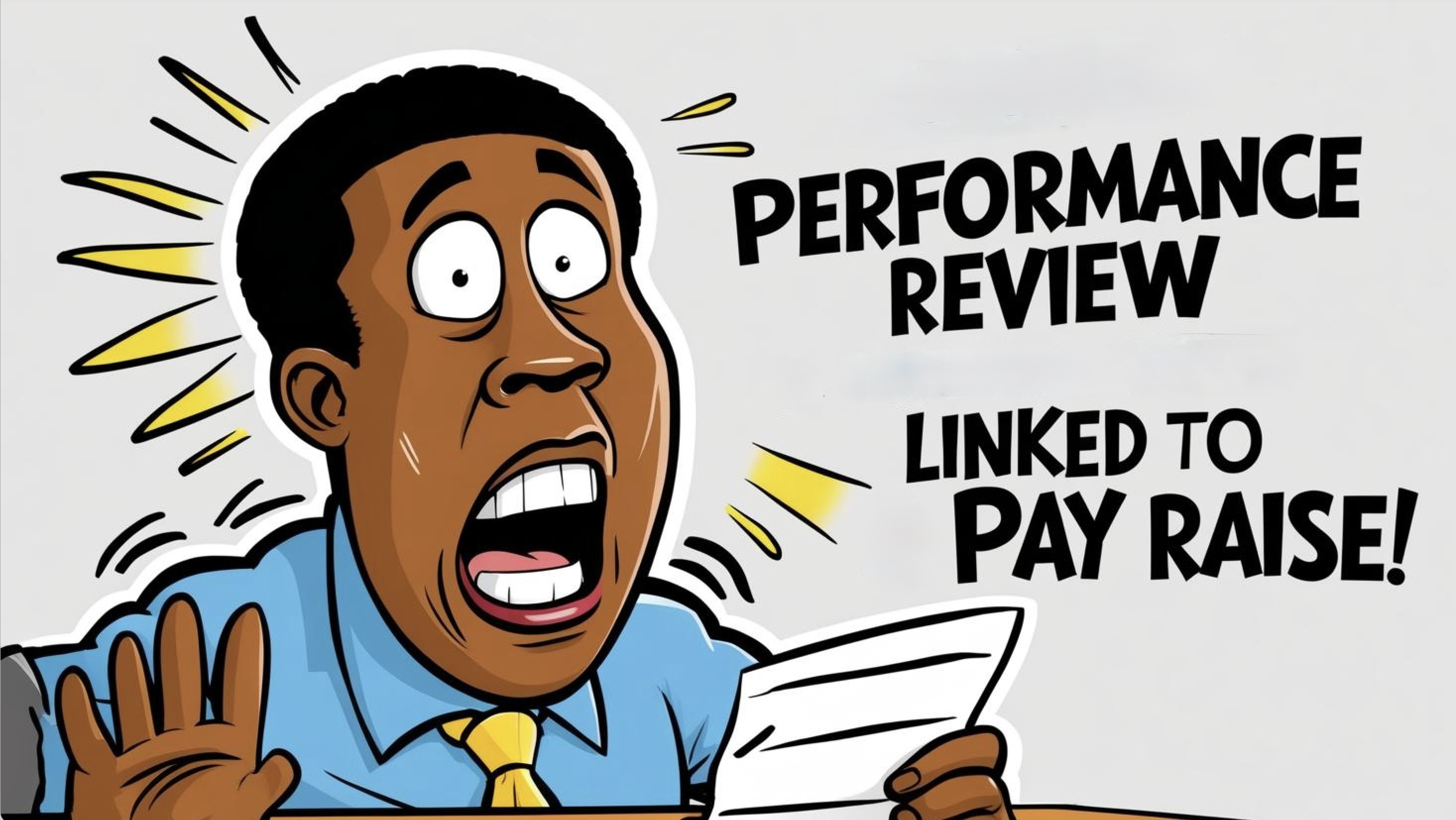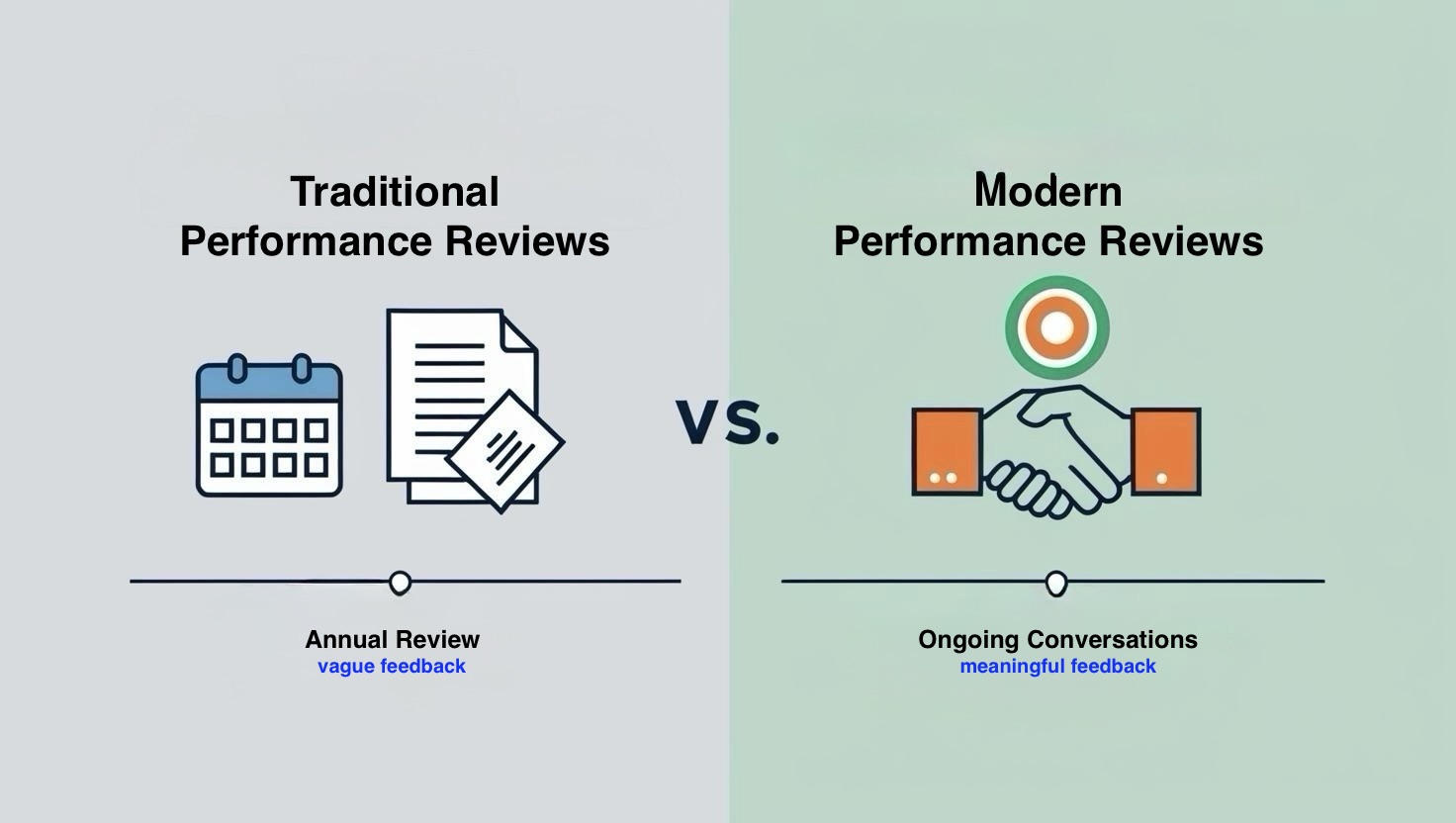Why I Hated Performance Reviews and How We Can Fix Them
A Personal Take by Peter T. Masters

Ah, performance reviews — the corporate version of a root canal. You sit there, smiling
awkwardly, as someone tells you how 'opportunities for growth' really means 'you
messed up last quarter.' It's like a weird talent show where your boss is the only
judge, and the prize is... more work. But don't worry, this isn't another rant about
why they're the worst. Nope, this is about fixing the disaster. Because believe it or
not, performance reviews don't have to feel like torture. Stick with me, and let's
figure out how to turn this dreaded ritual into something actually useful — and dare I
say, maybe even fun.
The Broken System
It's not just me. Performance reviews are widely despised by employees and managers alike.
At one point, General Electric — yes, the inventors of the modern performance
review — decided to scrap their annual system altogether because it was killing
morale.
GE wasn't alone. Adobe made headlines when they replaced their annual reviews with
something they called the "Check-In" system. Instead of formal reviews, managers and
employees had regular, informal conversations about progress and goals. The result?
Employees felt heard, turnover dropped by 30%, and managers saved an incredible
80,000 hours a year.
But why did it take so long for companies to figure this out?
Why Performance Reviews Hurt More Than Help

For years, companies clung to outdated methods. Reviews happened once a year, often
at the worst possible time — when everyone was scrambling to meet end-of-year
deadlines. Managers rushed to write evaluations based on hazy memories and gut feelings,
which meant feedback was often generic or outright unhelpful.
At one company, I sat through a review where I was told, "You're doing great, but you
need to work faster." What did that mean? Why was I working too "slow"? Were there issues
beyond my control that prevented me from working "faster"? None of this was explored so
the feedback was of no help. Meanwhile, my manager was as uncomfortable as I was.
I could tell they didn't enjoy giving feedback any more than I enjoyed receiving it.
This wasn't feedback; it was theater.
That wasn't the worst experience, though. At different jobs over the years, I discovered
something even more disheartening: my review scores weren't really based on my performance at all!
Pay raises were tied to review grades, but the grades were constrained by the
budget. I was literally told, "The best you can get is a 3 out of 5 because
that's the raise we can afford. I'm sorry, you deserve more but my hands are tied."
Imagine being told that no matter how hard you work, the system is rigged. That's when I realized:
performance reviews weren't about helping me grow. They were about numbers on a spreadsheet.

Turning the System Around
It doesn't have to be this way. Companies like Microsoft have shown us that performance
reviews can actually work if we're willing to change the script. Microsoft threw out
its traditional review system and replaced it with regular development conversations.
The key difference? The focus shifted from critiquing the past to planning for the future.
General Electric made a similar shift. They developed a performance management app
called PD@GE that allows employees to receive real-time feedback from peers and managers.
By prioritizing frequent, meaningful conversations, GE improved collaboration and reduced
the stress of formal evaluations.
Even Deloitte overhauled their system, introducing project-based reviews where feedback
happens immediately after a project ends. This simple change eliminated months of review
preparation and helped employees grow in real time.
What You Can Do
If you're stuck in a system that feels broken, here's my advice:
-
Start small. If your company won't overhaul reviews overnight, try having
informal check-ins with your team.
-
Be specific. Don't say "work faster." Say, "Your work is thorough, which I value,
but improving your speed while maintaining quality would help us meet our
deadlines more effectively — let's discuss how I can support you in that."
-
Separate pay from performance conversations. Transparency around raises builds
trust, and it keeps feedback focused on growth.
It's not just about happier employees — it's about better results. Gallup found
that companies using regular feedback systems are 21% more profitable. And honestly, who
doesn't want to be 21% better?
Final Thoughts
Performance reviews don't have to be painful. They can be meaningful, productive, and
even enjoyable — if we're willing to let go of the old ways.
Let's stop ticking boxes and start having real conversations. Because when we fix
performance reviews, we don't just fix feedback — we fix trust, motivation,
and growth.
Together, we can do better.



